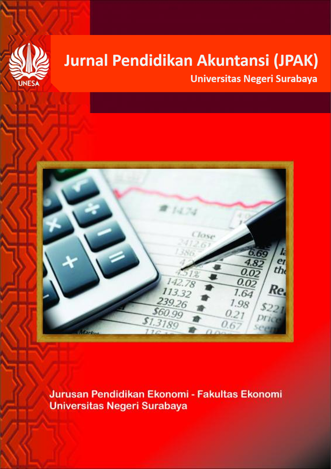Pengaruh Pemahaman Akuntansi Dasar, Gaya Belajar, Prokrastinasi Akademik, Dan Fasilitas Laboratorium Terhadap Hasil Belajar Spreadsheet
DOI:
https://doi.org/10.26740/jpak.v8n3.p46-54Keywords:
Basic accounting; learning style; procrastination; facilities; learning outcomesAbstract
The purpose of this study was to determine and analyze the effect of understanding of basic accounting, learning styles, academic procrastination, and laboratory facilities simultaneously and partially on spreadsheet learning outcomes for class X students of Accounting Skills Competency at State Vocational high school 1 Magetan. This type of research taken by researchers is quantitative research. The sample in this study was a random sampling technique, with a total sample of 108 students. Data collection techniques used were questionnaires and documentation. The results of the study show that the understanding of basic accounting, learning styles, academic procrastination and laboratory facilities simultaneously influences the learning outcomes of X grade students in the Accounting Competency Competency of State Vocational high school 1 Magetan. This is evidenced by the Adjust R Square value of 0.886 or it can be interpreted that 88.6% of the spreadsheets learning outcomes are influenced by variables of understanding of basic accounting, learning styles, academic procrastination and laboratory facilities while the remaining 11.3% is influenced by other variables not examined in this research. T test results show (1) understanding of basic accounting has a positive and significant effect on learning outcomes in a spreadsheet of 2,061; (2) learning style has a positive and significant effect on spreadsheet learning outcomes of 2.358; (3) academic procrastination has a positive and significant effect of 4,012; (4) laboratory facilities have a positive and significant effect of 7,012.
Downloads
Downloads
Published
How to Cite
Issue
Section
License
Authors who publish with this journal agree to the following terms:
- Authors retain copyright and grant the journal right of first publication with the work simultaneously licensed under a Creative Commons Attribution License that allows others to share the work with an acknowledgement of the work's authorship and initial publication in this journal.
- Authors are able to enter into separate, additional contractual arrangements for the non-exclusive distribution of the journal's published version of the work (e.g., post it to an institutional repository or publish it in a book), with an acknowledgement of its initial publication in this journal.
- Authors are permitted and encouraged to post their work online (e.g., in institutional repositories or on their website) prior to and during the submission process, as it can lead to productive exchanges, as well as earlier and greater citation of published work (See The Effect of Open Access).

Jurnal Pendidikan Akuntansi (JPAK) is licensed under a Creative Commons Attribution-NonCommercial 4.0 International License.
 Abstract views: 473
,
Abstract views: 473
, PDF Downloads: 517
PDF Downloads: 517



